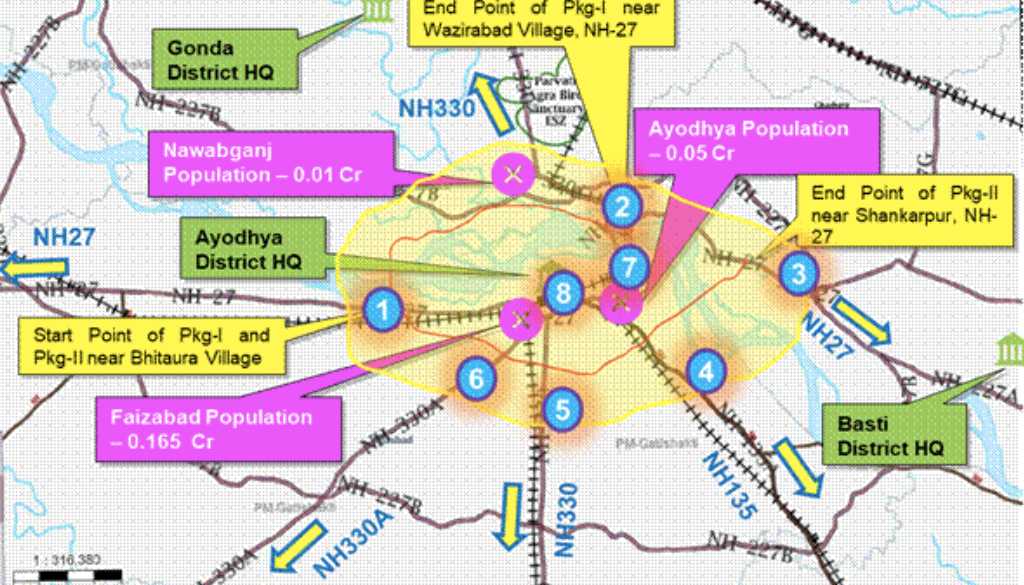Ayodhya Bypass Project Marks Milestone in Infrastructure Development

New Delhi, 26th January 2024: The Ayodhya Bypass Project, a pivotal infrastructure initiative, was the focus of the 52nd Network Planning Group (NPG) meeting held under the PM GatiShakti framework. This Greenfield project spans 67.57 kilometers, covering the construction of the Northern Ayodhya Bypass (35.40 kms) and Southern Ayodhya Bypass (32.172 kms), linking key districts like Lucknow, Basti, and Gonda.
Designed to enhance connectivity to economic, social, and logistics nodes, the project aims to alleviate traffic congestion in Ayodhya. Ayodhya, strategically positioned between economic hubs like Lucknow and Gorakhpur, serves as a vital passageway for major commodities such as leather, engineering goods, building materials, iron, and steel. The bypass is expected to ensure uninterrupted freight flows and reduce congestion in the city.
The Ayodhya Bypass Project is anticipated to address the forecasted increase in passenger and freight vehicle movement, providing seamless connectivity to national highways like NH-27, NH-330A, NH-330, and NH-135A. This multi-modal project integrates railway stations (Ayodhya Railway Station, Sohwal Railway Station, A N Dev Nagar Railway Station, and Ayodhya Cantt Railway Station) and an airport (Ayodhya Airport) into its infrastructure.
Envisioned to complement other projects evaluated in NPG meetings, such as the Prayagraj – Raibareili Project, Gorakhpur-Siliguri Corridor, and Gorakhpur-Bareilly Corridor, the Ayodhya Bypass Project is a crucial component of the regional infrastructure landscape. The inauguration of the Maharishi Valmiki International Airport and the redevelopment of Ayodhya Dham Junction Railway Station further enhance connectivity and contribute to economic development.
Key Features of the Redeveloped Ayodhya Dham Junction Railway Station:
– Three-storied modern railway station building with lifts, escalators, food plazas, and shops.
– ‘Accessible for all’ building.
– ‘IGBC certified green station building.’
Key Highlights:
– Major commodities passing through Ayodhya: Manufacturing items, building materials, perishable groceries, and others.
– Efficiencies generated from the corridor: 5 km length reduction, 66.67% travel time reduction, 250% increment in average speed, and 80 Lakh person-days of employment generation.
– Environmental impact: 50 lakhs liters fuel reduction annually, 1 crore kg reduction in carbon footprints, and the use of recyclable/reusable materials in construction over a 20 km length.
The Ayodhya Bypass Project signifies a comprehensive approach towards sustainable development, connectivity enhancement, and economic growth in the region.








